- Главная
- Разное
- Бизнес и предпринимательство
- Образование
- Развлечения
- Государство
- Спорт
- Графика
- Культурология
- Еда и кулинария
- Лингвистика
- Религиоведение
- Черчение
- Физкультура
- ИЗО
- Психология
- Социология
- Английский язык
- Астрономия
- Алгебра
- Биология
- География
- Геометрия
- Детские презентации
- Информатика
- История
- Литература
- Маркетинг
- Математика
- Медицина
- Менеджмент
- Музыка
- МХК
- Немецкий язык
- ОБЖ
- Обществознание
- Окружающий мир
- Педагогика
- Русский язык
- Технология
- Физика
- Философия
- Химия
- Шаблоны, картинки для презентаций
- Экология
- Экономика
- Юриспруденция
Что такое findslide.org?
FindSlide.org - это сайт презентаций, докладов, шаблонов в формате PowerPoint.
Обратная связь
Email: Нажмите что бы посмотреть
Презентация на тему Stonehenge
Содержание
- 2. Map of Wiltshire showing the loca-tion of Stone-henge
- 3. Stonehenge is a prehistoric monument in Wiltshire,
- 4. HistoryArchaeologists believe it was built anywhere from
- 5. Plan of the central stone structure today. After Johnson 2008
- 6. Function and constructionStonehenge was produced by a
- 7. When Stonehenge was first opened to the
- 8. Скачать презентацию
- 9. Похожие презентации
Map of Wiltshire showing the loca-tion of Stone-henge



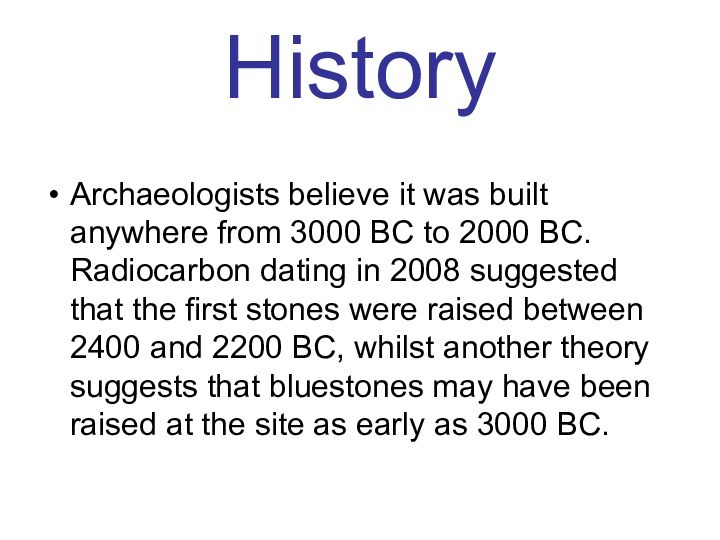
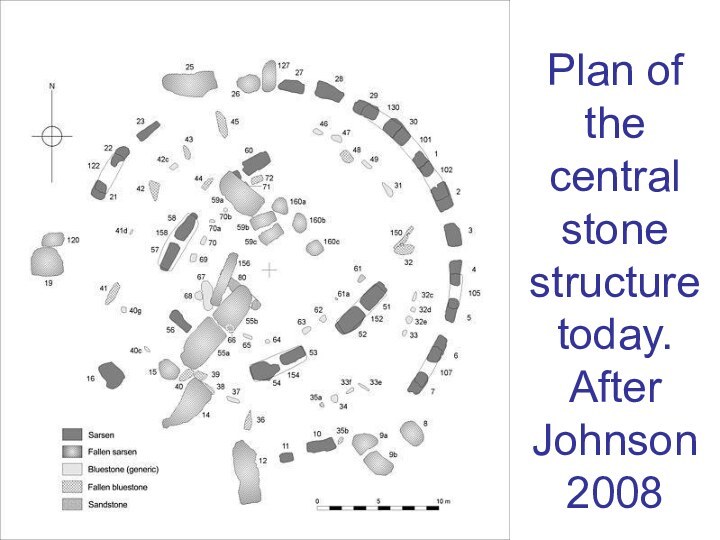
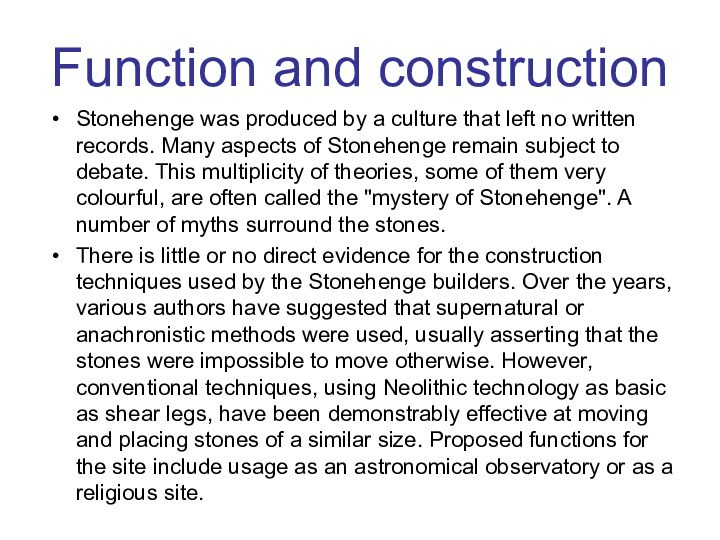
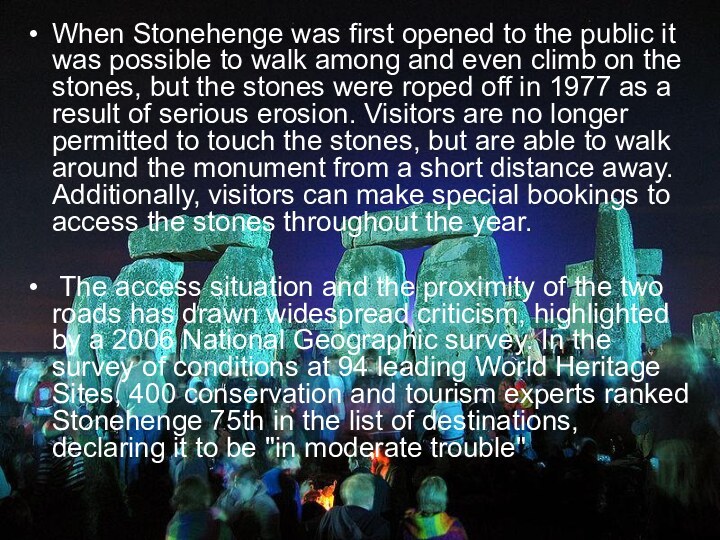
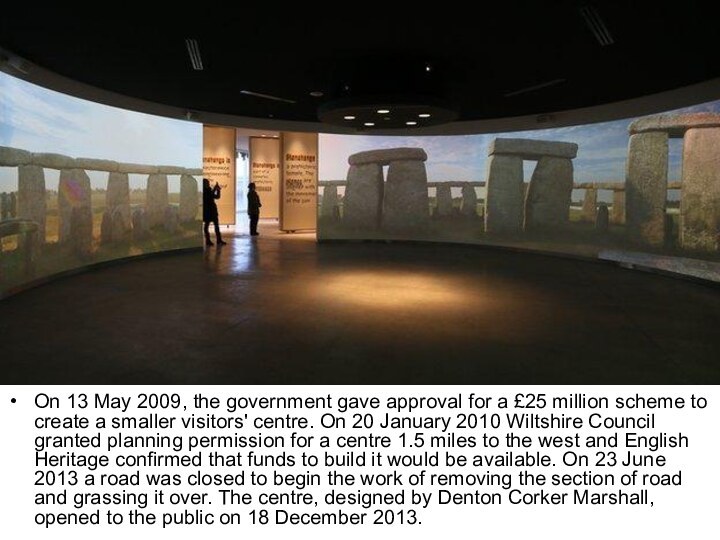
Слайд 4
History
Archaeologists believe it was built anywhere from 3000
BC to 2000 BC. Radiocarbon dating in 2008 suggested
that the first stones were raised between 2400 and 2200 BC, whilst another theory suggests that bluestones may have been raised at the site as early as 3000 BC.
Слайд 6
Function and construction
Stonehenge was produced by a culture
that left no written records. Many aspects of Stonehenge
remain subject to debate. This multiplicity of theories, some of them very colourful, are often called the "mystery of Stonehenge". A number of myths surround the stones.There is little or no direct evidence for the construction techniques used by the Stonehenge builders. Over the years, various authors have suggested that supernatural or anachronistic methods were used, usually asserting that the stones were impossible to move otherwise. However, conventional techniques, using Neolithic technology as basic as shear legs, have been demonstrably effective at moving and placing stones of a similar size. Proposed functions for the site include usage as an astronomical observatory or as a religious site.
Слайд 7 When Stonehenge was first opened to the public
it was possible to walk among and even climb
on the stones, but the stones were roped off in 1977 as a result of serious erosion. Visitors are no longer permitted to touch the stones, but are able to walk around the monument from a short distance away. Additionally, visitors can make special bookings to access the stones throughout the year.The access situation and the proximity of the two roads has drawn widespread criticism, highlighted by a 2006 National Geographic survey. In the survey of conditions at 94 leading World Heritage Sites, 400 conservation and tourism experts ranked Stonehenge 75th in the list of destinations, declaring it to be "in moderate trouble"





























